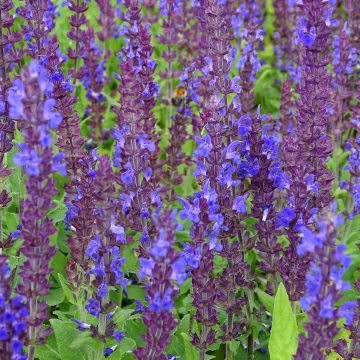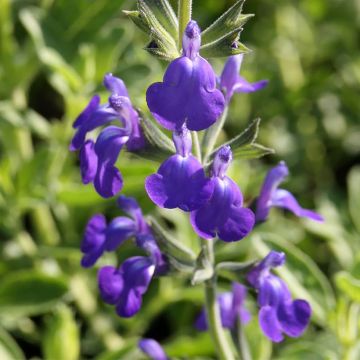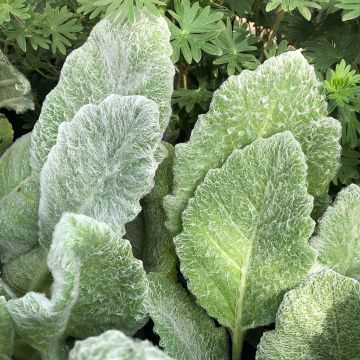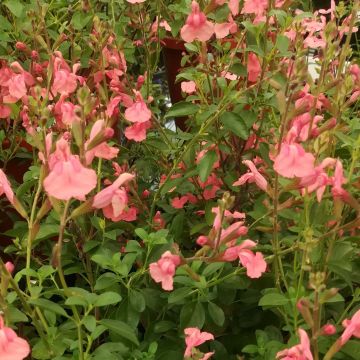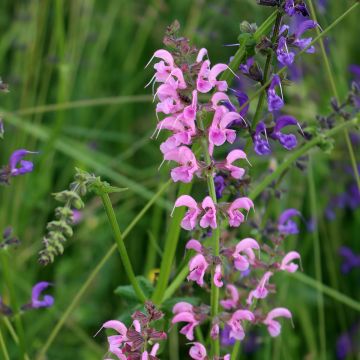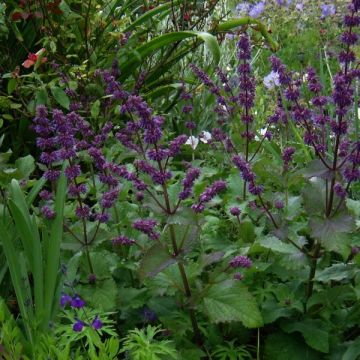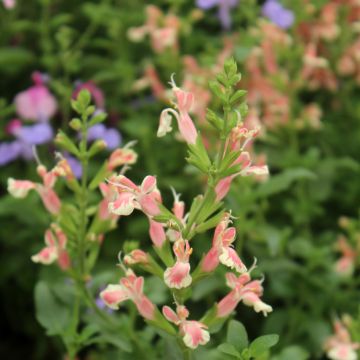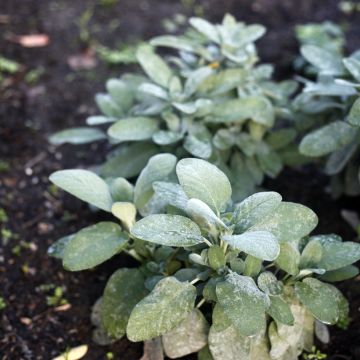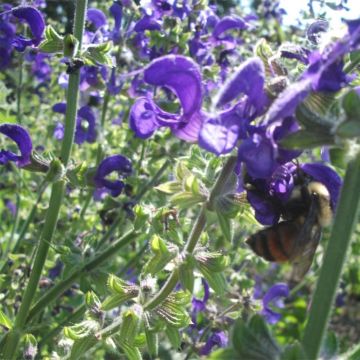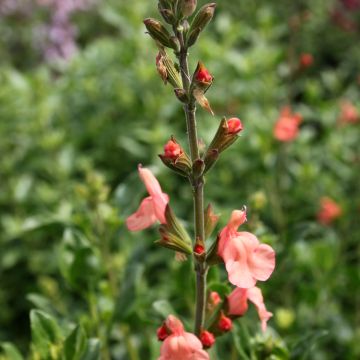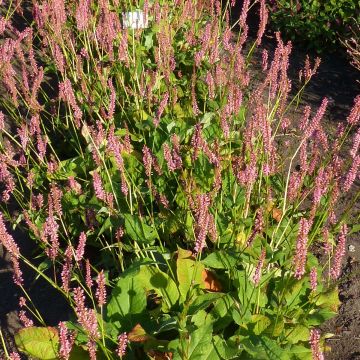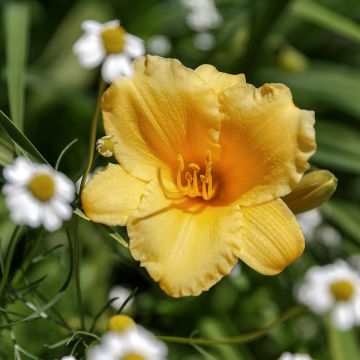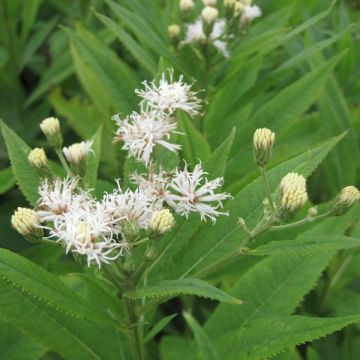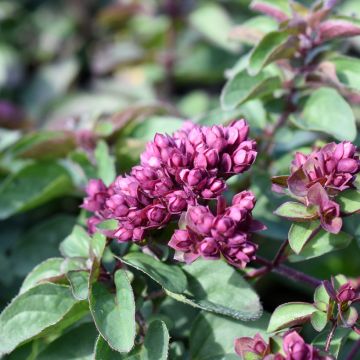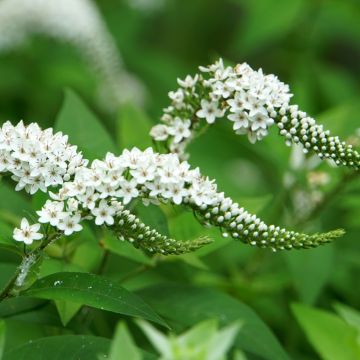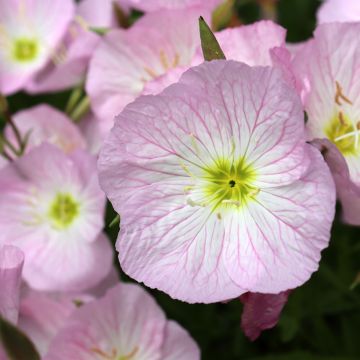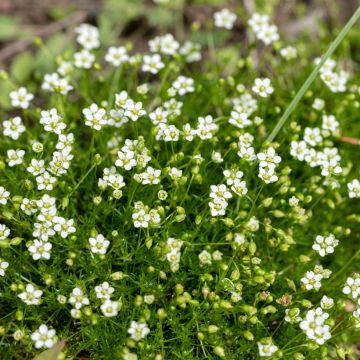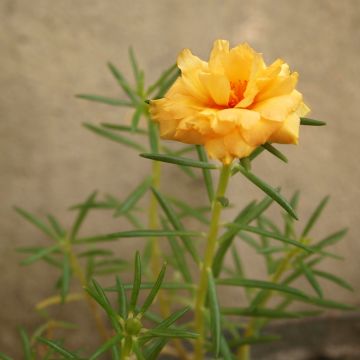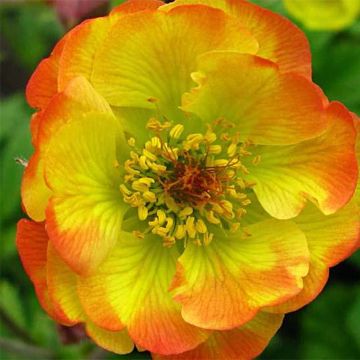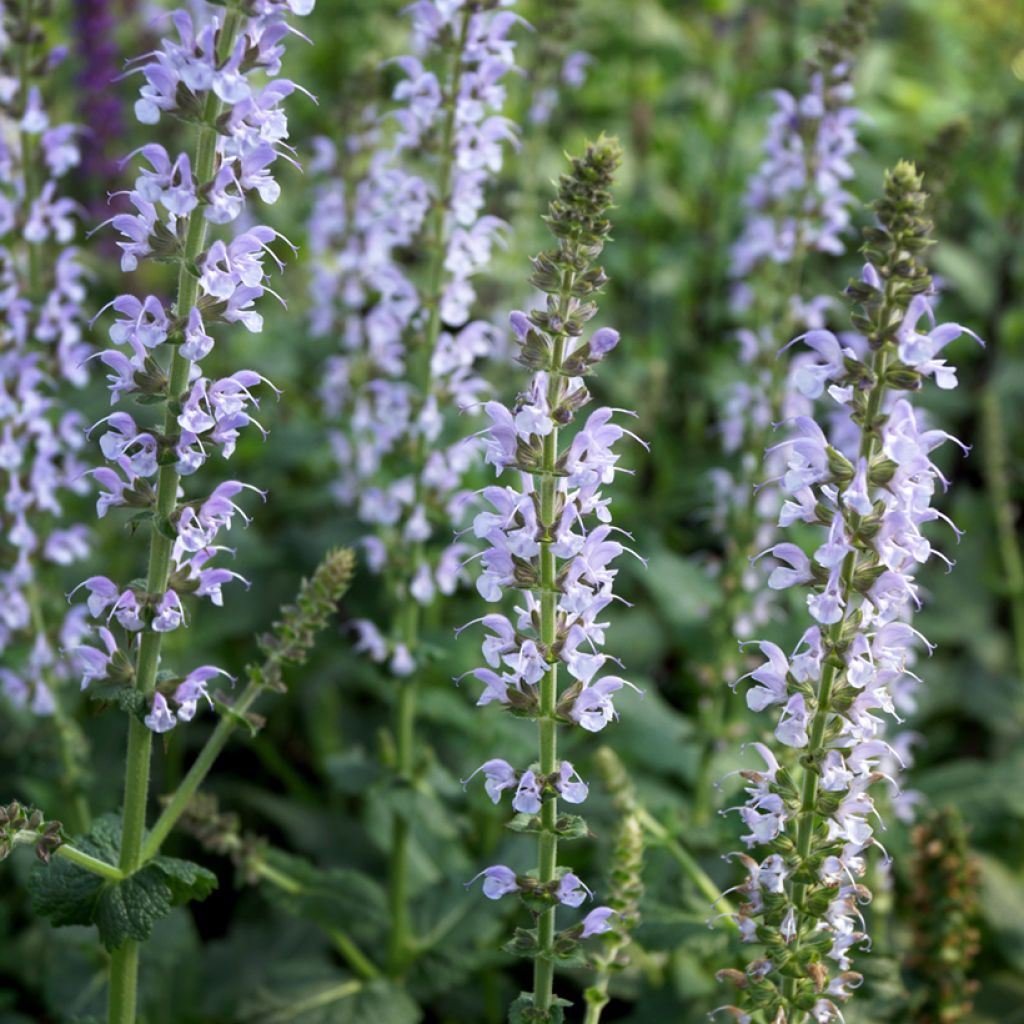

Salvia nemorosa Colourspires Crystal Blue - Woodland Sage
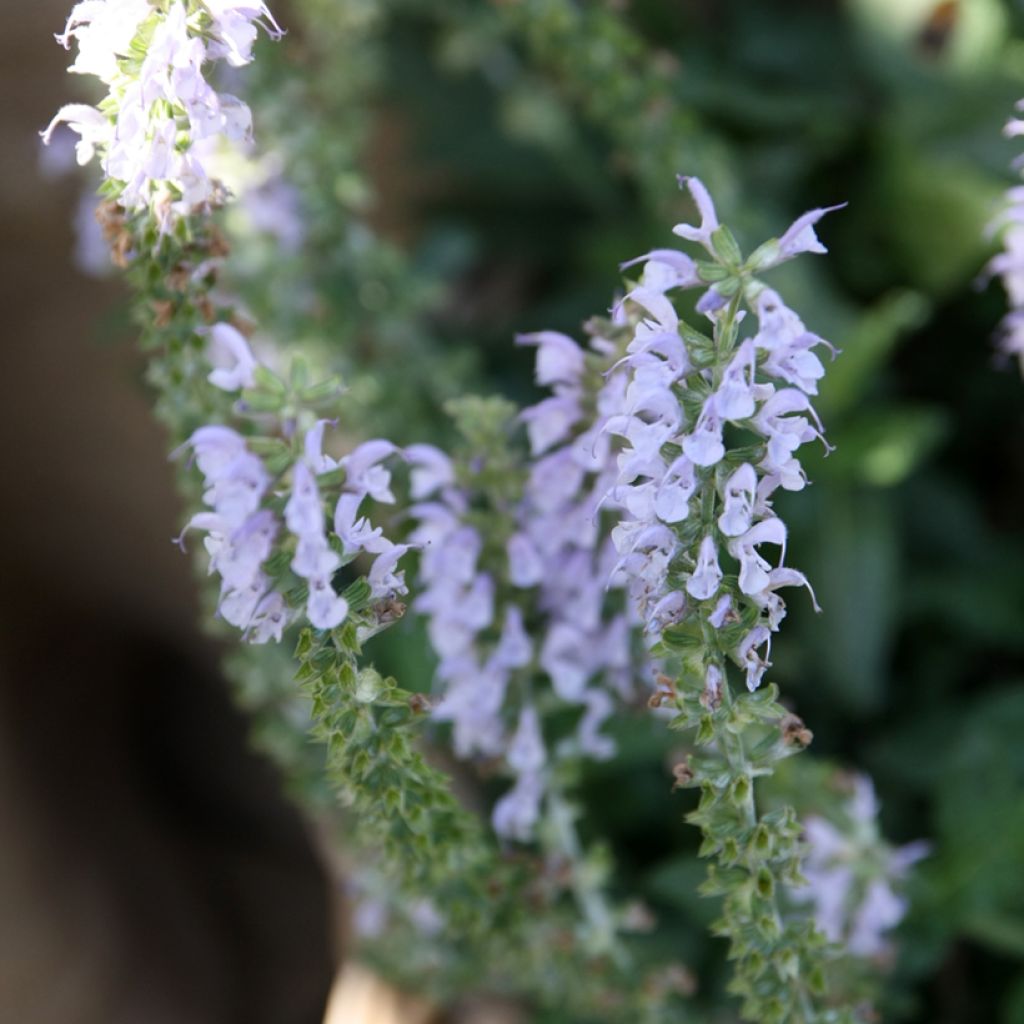

Salvia nemorosa Colourspires Crystal Blue - Woodland Sage
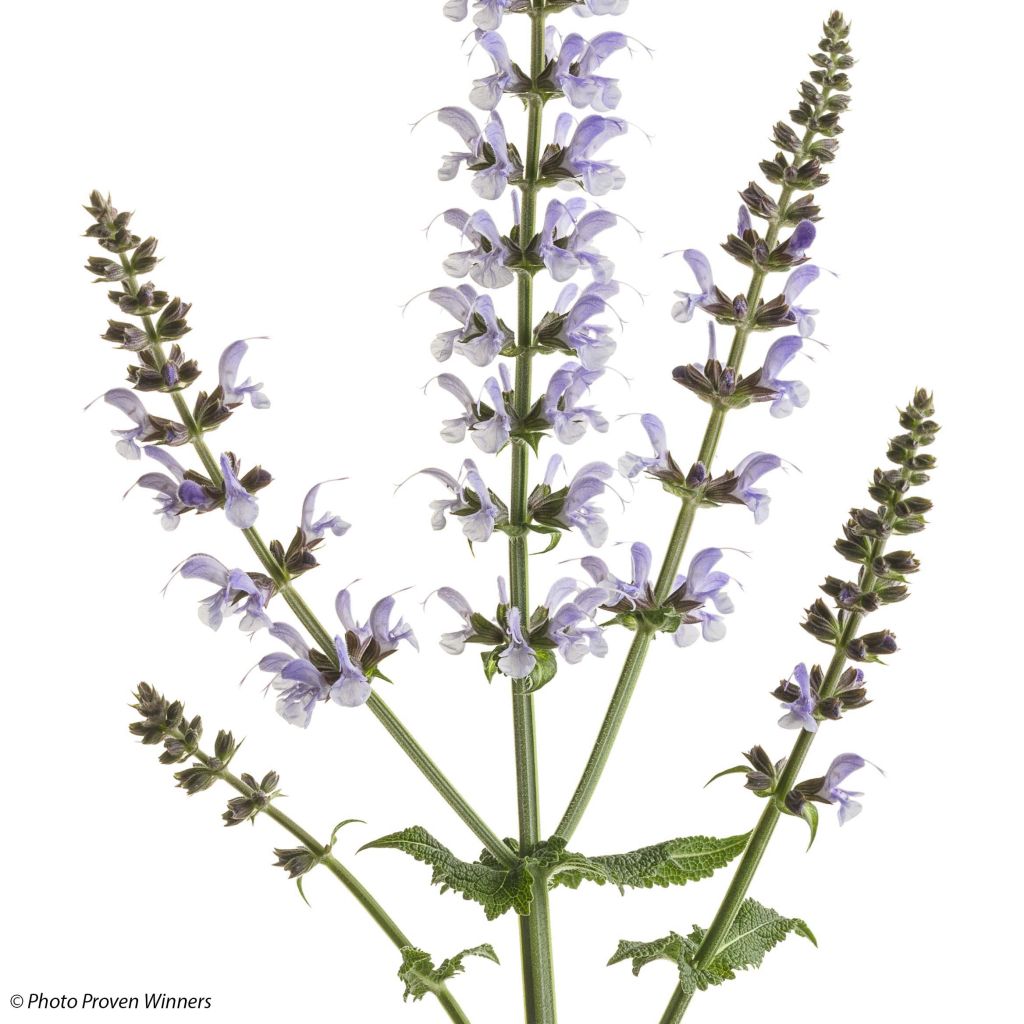

Salvia nemorosa Colourspires Crystal Blue - Woodland Sage
Salvia nemorosa Colourspires Crystal Blue - Woodland Sage
Salvia nemorosa Colorspires Crystal Blue
Woodland Sage, Balkan Clary
This item cannot be shipped to the selected country
Delivery charge from €5.90
Delivery to Corse prohibited
More information
Schedule delivery date,
and select date in basket
This plant carries a 12 months recovery warranty
More information
We guarantee the quality of our plants for a full growing cycle, and will replace at our expense any plant that fails to recover under normal climatic and planting conditions.
From €5.90 for pickup delivery and €6.90 for home delivery
Express home delivery from €8.90.
Delivery to Corse prohibited: UE law prohibits the import of this plant from mainland France to Corse as part of the fight against Xylella fastidiosa. Please accept our sincere apologies.
More information
Does this plant fit my garden?
Set up your Plantfit profile →
Description
The Salvia nemorosa 'Crystal Blue' is a new variety of wood sage from the Colorspires series that stands out from the others with its astonishing light blue colour during its long summer flowering period. This adorable sage forms long spikes bearing hundreds of small sky blue flowers, translucent in full light. They dominate a particularly branched tuft, dressed in pleasantly aromatic dark greenish-grey foliage. Not too tall, hardy, remarkable for its colour in borders as well as in flowering pots, this robust, floriferous and easy to grow perennial will not disappoint.
Salvia nemorosa is a perennial from the lamiaceae or labiate family. It is a species native to central Europe and western Asia. 'Crystal Blue' is a cultivar discovered in 2010 in Illinois, USA, growing in a field of the 'Mainacht' variety. This variety obtained third place at the Chelsea Flower Show in 2017. Its adult size will not exceed 55 cm (22in) in height when in bloom, with 35 cm (14in) for the foliage, and 60 cm (0 and 24in) in width. This perennial develops from a prostrate rosette of oval, rough, dark greenish-grey leaves with toothed edges, aromatic when crushed. It has a more bushy habit than 'Mainacht', very branching and sturdy. Flowering begins in June and continues until August-September, depending on the climate, in the form of thin and slender terminal clusters, bearing many small flowers (0.5 to 1 cm (0in)) of a very bright light blue. The beautiful spikes with nectar-rich flowers bring joy to butterflies and bees.
Salvia nemorosa 'Crystal Blue' blends wonderfully with all other wood sages, creating beautiful scenes in shades of blue. It also has a striking effect when paired with a red rose for a strong contrast (Knockout), or with grey foliage of artemisias in dry soil, or purple foliage, such as that of Physocarpus opulifolius 'Lady in Red' in moister soil. It also pairs well with light pink flowers, such as the hastate verbena 'Rosea', which in terms of height will dominate the shrubby mallow 'Barnsley', or the Penstemon 'Evelyn'. This plant will find a place in the composition of borders and beds alongside Perovskia, Lychnis coronaria Oculata, or coronillas. With its wheelbarrows of sky blue flowers, this plant makes an excellent alternative to Nepetas in wet and heavy soil. It is also an excellent candidate for ornamenting terraces and balconies, and a privileged guest in low-maintenance beds. Easy to grow, this plant is also one of the hardiest sages, and as such, a wonderful garden perennial that will not disappoint. It resists everything, even wind, cold, heat, and poor soils.
With over 900 species of annuals, perennials, and softwood shrubs, spread across the globe, except for in very cold regions and the tropical forest, the Salvia genus is the richest in the lamiaceae family. The name Salvia, which dates back to Roman times, derives from the Latin salvus "healthy" in reference to the medicinal virtues of the common sage.
Report an error about the product description
Salvia nemorosa Colourspires Crystal Blue - Woodland Sage in pictures
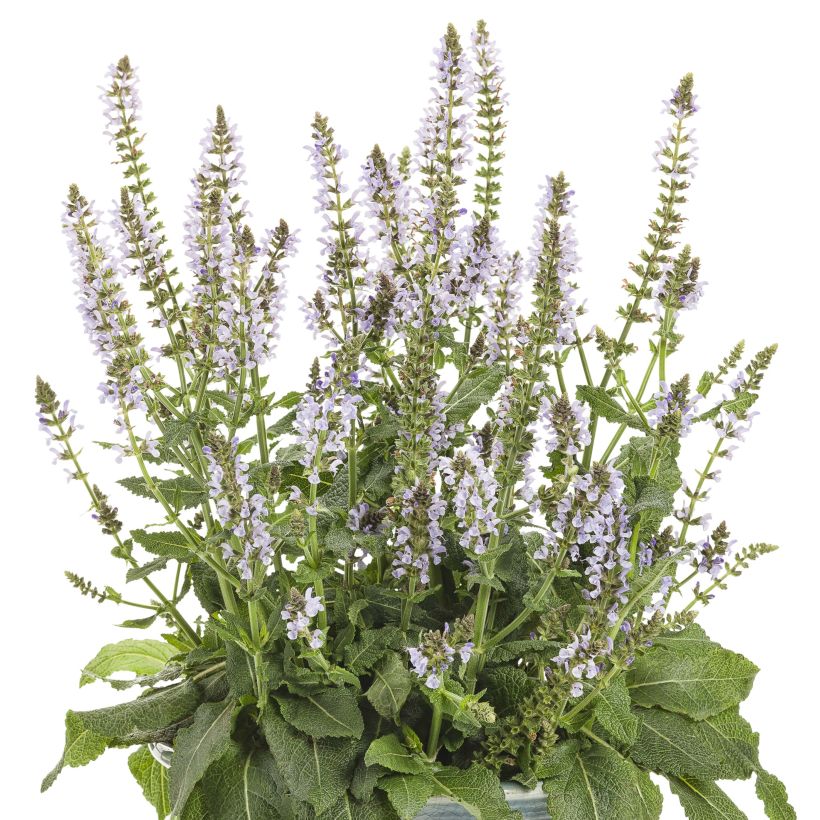

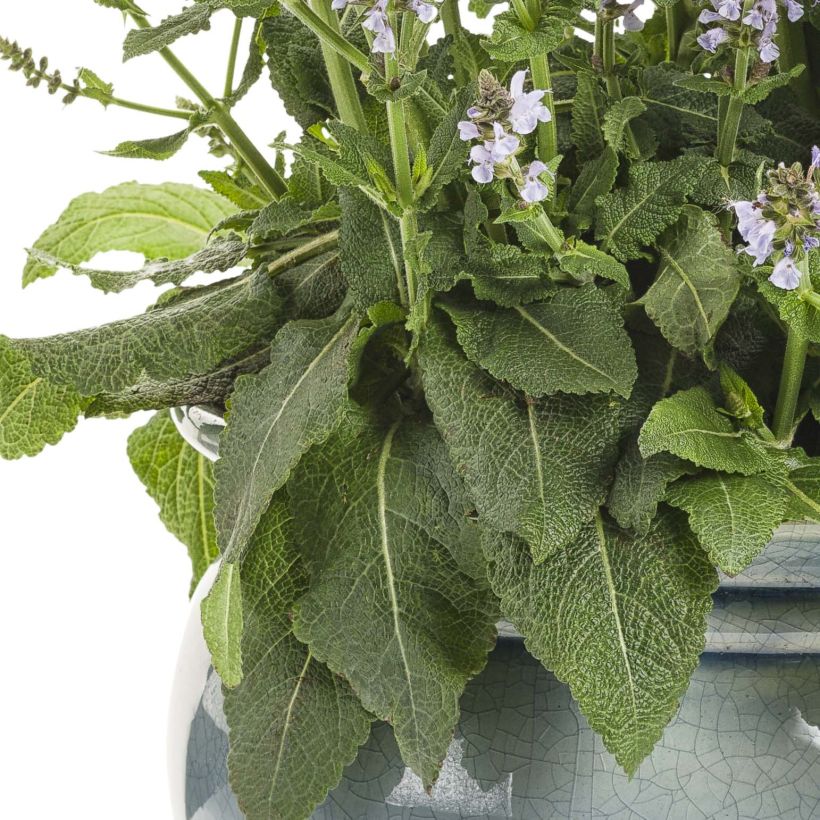

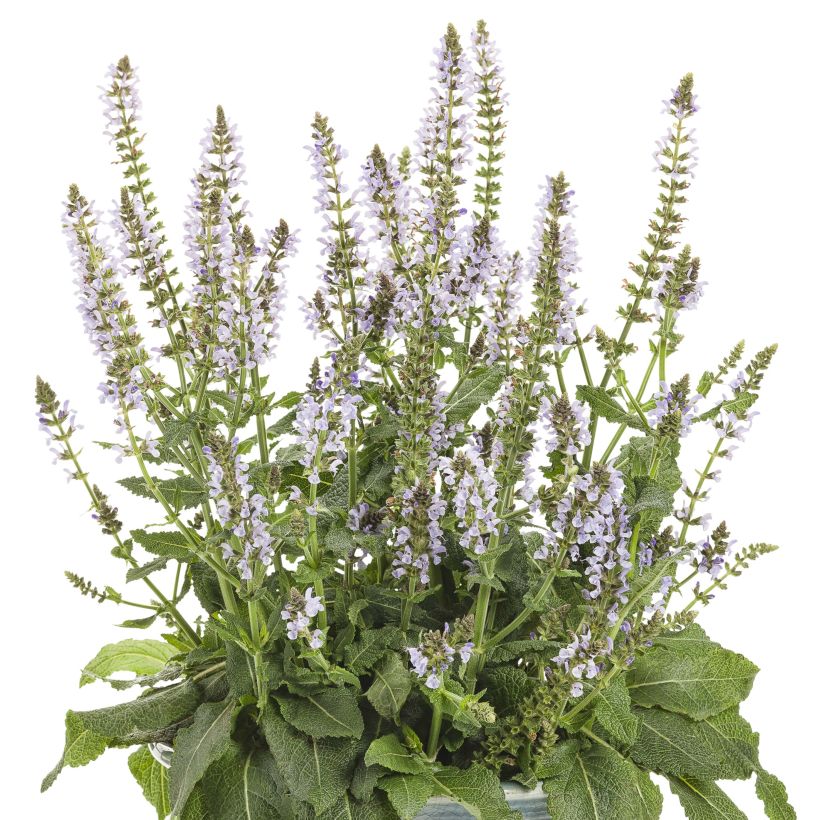

Flowering
Foliage
Plant habit
Botanical data
Salvia
nemorosa
Colorspires Crystal Blue
Lamiaceae
Woodland Sage, Balkan Clary
Cultivar or hybrid
Other Salvia - Sage
Planting and care
The Salvia nemorosa 'Crystal Blue' should be planted from October to March, outside of the freezing period, with a spacing of 40 cm (16in) in a well-drained soil, even rocky, in full sun or partial shade. This plant tolerates some drought, but will flower more abundantly in soil that remains fresh during summer. If your soil is very heavy, lighten it with leaf compost and coarse sand. In winter, apply a light compost of manure or other organic matter. Cut it back to 20 cm (8in) in late winter before the start of vegetation. Beware of gastropods that can attack young shoots. In humid regions, use a mineral mulch (gravel, pumice, pebbles) with a thickness of 4 to 6 cm (2in) to help drain the collar of the plant. Under these conditions, it can withstand temperatures as low as -30°C (-22°F). To preserve the vitality of the sage, it is advisable to divide the plant after three years. Plant the new plants in well-worked soil: to improve slightly poor soil, mix in some horticultural compost.
Planting period
Intended location
Care
-
, onOrder confirmed
Reply from on Promesse de fleurs
Summer flowering perennials
Haven't found what you were looking for?
Hardiness is the lowest winter temperature a plant can endure without suffering serious damage or even dying. However, hardiness is affected by location (a sheltered area, such as a patio), protection (winter cover) and soil type (hardiness is improved by well-drained soil).

Photo Sharing Terms & Conditions
In order to encourage gardeners to interact and share their experiences, Promesse de fleurs offers various media enabling content to be uploaded onto its Site - in particular via the ‘Photo sharing’ module.
The User agrees to refrain from:
- Posting any content that is illegal, prejudicial, insulting, racist, inciteful to hatred, revisionist, contrary to public decency, that infringes on privacy or on the privacy rights of third parties, in particular the publicity rights of persons and goods, intellectual property rights, or the right to privacy.
- Submitting content on behalf of a third party;
- Impersonate the identity of a third party and/or publish any personal information about a third party;
In general, the User undertakes to refrain from any unethical behaviour.
All Content (in particular text, comments, files, images, photos, videos, creative works, etc.), which may be subject to property or intellectual property rights, image or other private rights, shall remain the property of the User, subject to the limited rights granted by the terms of the licence granted by Promesse de fleurs as stated below. Users are at liberty to publish or not to publish such Content on the Site, notably via the ‘Photo Sharing’ facility, and accept that this Content shall be made public and freely accessible, notably on the Internet.
Users further acknowledge, undertake to have ,and guarantee that they hold all necessary rights and permissions to publish such material on the Site, in particular with regard to the legislation in force pertaining to any privacy, property, intellectual property, image, or contractual rights, or rights of any other nature. By publishing such Content on the Site, Users acknowledge accepting full liability as publishers of the Content within the meaning of the law, and grant Promesse de fleurs, free of charge, an inclusive, worldwide licence for the said Content for the entire duration of its publication, including all reproduction, representation, up/downloading, displaying, performing, transmission, and storage rights.
Users also grant permission for their name to be linked to the Content and accept that this link may not always be made available.
By engaging in posting material, Users consent to their Content becoming automatically accessible on the Internet, in particular on other sites and/or blogs and/or web pages of the Promesse de fleurs site, including in particular social pages and the Promesse de fleurs catalogue.
Users may secure the removal of entrusted content free of charge by issuing a simple request via our contact form.
The flowering period indicated on our website applies to countries and regions located in USDA zone 8 (France, the United Kingdom, Ireland, the Netherlands, etc.)
It will vary according to where you live:
- In zones 9 to 10 (Italy, Spain, Greece, etc.), flowering will occur about 2 to 4 weeks earlier.
- In zones 6 to 7 (Germany, Poland, Slovenia, and lower mountainous regions), flowering will be delayed by 2 to 3 weeks.
- In zone 5 (Central Europe, Scandinavia), blooming will be delayed by 3 to 5 weeks.
In temperate climates, pruning of spring-flowering shrubs (forsythia, spireas, etc.) should be done just after flowering.
Pruning of summer-flowering shrubs (Indian Lilac, Perovskia, etc.) can be done in winter or spring.
In cold regions as well as with frost-sensitive plants, avoid pruning too early when severe frosts may still occur.
The planting period indicated on our website applies to countries and regions located in USDA zone 8 (France, United Kingdom, Ireland, Netherlands).
It will vary according to where you live:
- In Mediterranean zones (Marseille, Madrid, Milan, etc.), autumn and winter are the best planting periods.
- In continental zones (Strasbourg, Munich, Vienna, etc.), delay planting by 2 to 3 weeks in spring and bring it forward by 2 to 4 weeks in autumn.
- In mountainous regions (the Alps, Pyrenees, Carpathians, etc.), it is best to plant in late spring (May-June) or late summer (August-September).
The harvesting period indicated on our website applies to countries and regions in USDA zone 8 (France, England, Ireland, the Netherlands).
In colder areas (Scandinavia, Poland, Austria...) fruit and vegetable harvests are likely to be delayed by 3-4 weeks.
In warmer areas (Italy, Spain, Greece, etc.), harvesting will probably take place earlier, depending on weather conditions.
The sowing periods indicated on our website apply to countries and regions within USDA Zone 8 (France, UK, Ireland, Netherlands).
In colder areas (Scandinavia, Poland, Austria...), delay any outdoor sowing by 3-4 weeks, or sow under glass.
In warmer climes (Italy, Spain, Greece, etc.), bring outdoor sowing forward by a few weeks.

































